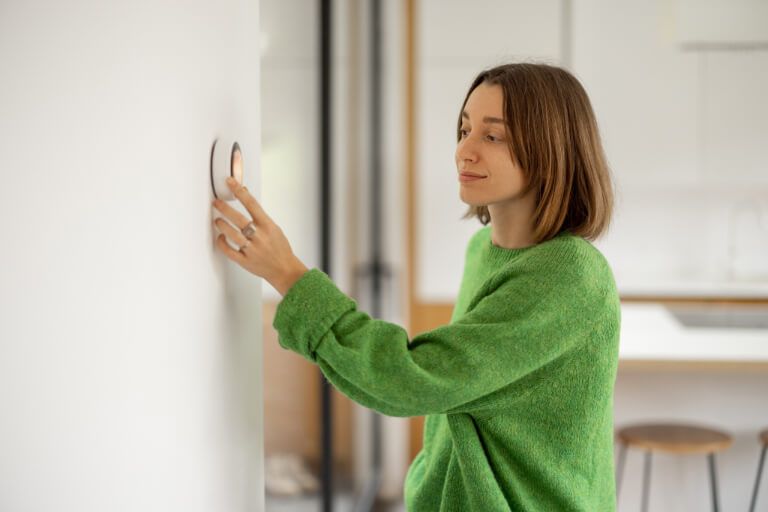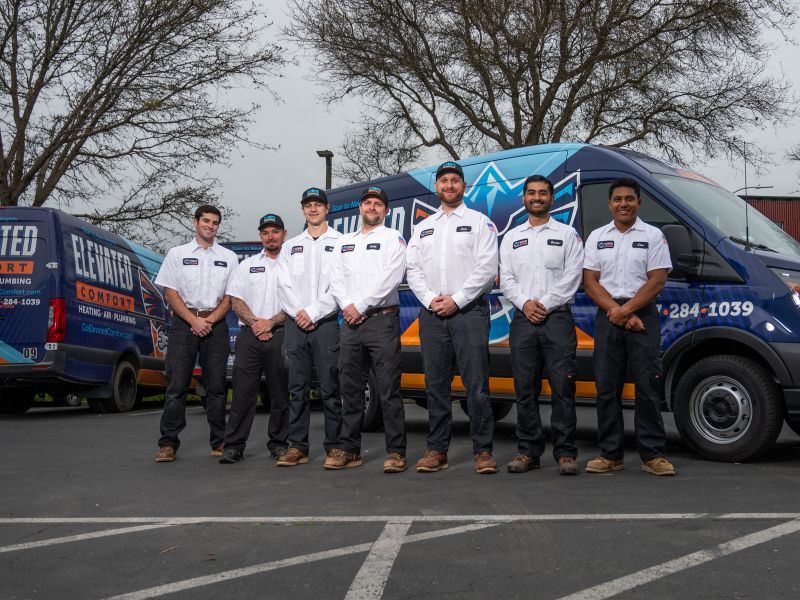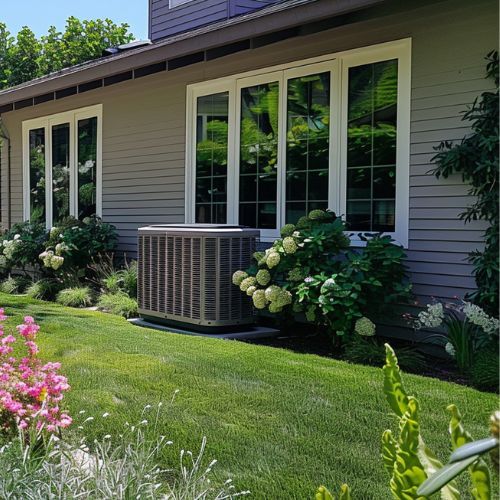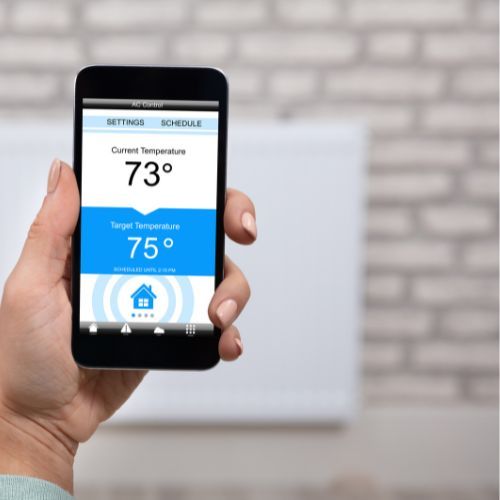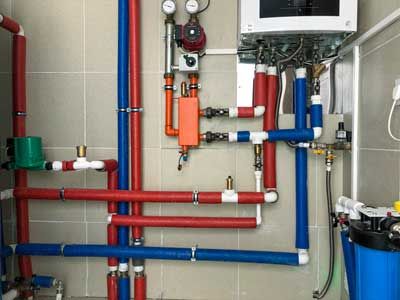Learn HVAC Basic DIY Diagnostics
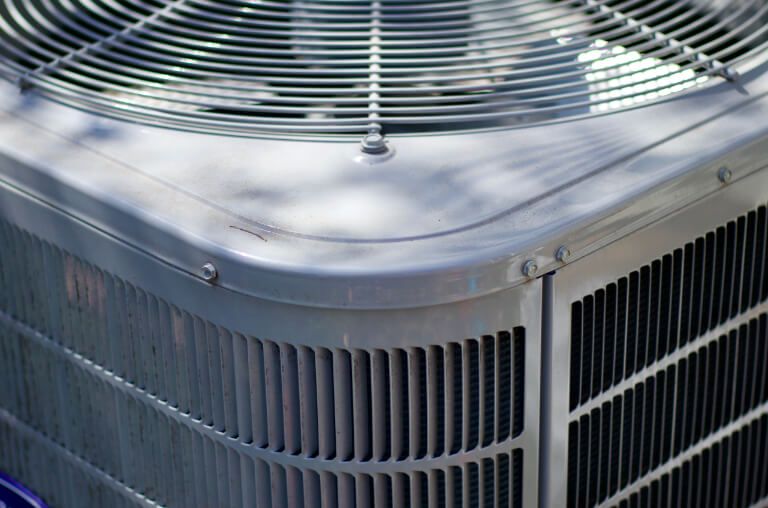
Table of Contents
ToggleKey Takeaways
- Many common HVAC issues can be diagnosed with simple DIY checks, like inspecting filters, coils, breakers, and thermostat settings.
- Troubleshooting helps homeowners save time and prevent unnecessary repairs, but professional service is essential for refrigerant, wiring, and system performance issues.
- Combining DIY diagnostics with annual professional maintenance from Elevated Comfort is the best way to keep your system running smoothly year-round.
Most homeowners only think about their HVAC system when something goes wrong, and by then, the situation can feel urgent. But in reality, many common heating and cooling problems are caused by simple issues you can diagnose on your own. A little troubleshooting can save time, reduce repair costs, and help you understand your equipment better.
This in-depth guide walks you through basic HVAC troubleshooting steps you can safely try at home before calling a technician. You’ll also learn when DIY isn’t enough and when it’s time to contact Elevated Comfort for professional service.
What Is HVAC Troubleshooting?
HVAC troubleshooting means identifying the source of performance issues in your heating or cooling system. Some problems, like dirty filters or thermostat errors, require minimal skill and can be fixed quickly by homeowners. Other issues, like refrigerant leaks, faulty wiring, or compressor damage, require certified technicians due to safety risks and equipment complexity.
Troubleshooting helps you:
- Restore comfort quickly without waiting for service
- Reduce unnecessary repair visits
- Understand what your system needs
- Catch small issues before they turn into big ones
Knowing what you can safely handle and what you shouldn’t is the key to protecting your system while avoiding costly mistakes.
Why Should Homeowners Learn Basic HVAC Diagnostics?
Even if you never plan to repair your own system, understanding basic HVAC diagnostics offers several benefits:
- Lower energy bills. A clogged filter or dirty coil can increase energy use significantly.
- Fewer emergency breakdowns. Small issues compound over time.
- Better indoor comfort. Quick fixes restore airflow and temperature control faster.
- Longer system lifespan. A well-maintained system experiences less strain.
- Reduced repair costs. You avoid service calls for simple issues.
Troubleshooting isn’t a replacement for professional maintenance; it’s the first step in caring for your system properly.
How Is Troubleshooting Different from HVAC Maintenance?
Troubleshooting happens when something goes wrong. Maintenance happens before something goes wrong.
Maintenance includes:
- Yearly tune-ups
- Filter changes
- Cleaning of system components
- Thermostat calibration
- Safety checks
Troubleshooting addresses immediate problems, while maintenance prevents those problems from happening in the first place. Elevated Comfort always recommends annual professional tune-ups for both heating and cooling systems to help homeowners avoid emergency repairs.
DIY HVAC Troubleshooting: Basic Diagnostic Steps
Before you call for service, check the following. Many HVAC issues can be resolved in minutes.
1. Have You Checked or Replaced the Filters?
Dirty filters are the number-one cause of HVAC issues. Clogged filters lead to:
- Reduced airflow
- Higher energy use
- Longer run times
- Weak heating or cooling
- Overheating or frozen coils
- Poor indoor air quality
Replace or clean your filter every 1–3 months, depending on usage and home conditions. This single step solves a surprising number of problems.
2. Have You Inspected the Thermostat Settings?
Incorrect thermostat settings can mimic HVAC failure. Before assuming the system is broken, check that:
- The thermostat is set to “Heat” or “Cool”
- The temperature is set correctly
- The batteries are working
- The schedule isn’t overriding your manual selection
- The screen is responsive
If your thermostat is wireless or smart-enabled, confirm Wi-Fi and power are working. Thermostat errors are extremely common, especially after power outages or seasonal changeovers.
3. Does the System Have Power?
If your HVAC unit won’t turn on at all, check these areas before calling for help:
- Check the breaker box for a tripped circuit.
- Inspect the outdoor switch near the condenser.
- Confirm the furnace switch (looks like a light switch) is in the ON position.
- Test the outlet if you use a condensate pump.
HVAC systems draw significant power, and even minor electrical interruptions can shut them off.
4. Have You Cleaned the Coils?
Your HVAC system depends on clean coils for efficient heat transfer. Over time, dust, dirt, and outdoor debris can coat the coils, reducing efficiency and cooling power.
Dirty coils cause:
- Longer cooling cycles
- Higher monthly energy bills
- Warm air from vents
- Frozen evaporator coils
- Compressor strain
You can gently clean the outdoor coil with a garden hose and remove debris around the unit. However, deep coil cleaning is best handled by professionals to avoid bending fins or damaging components.
5. Have You Inspected the Wiring?
While homeowners should never handle electrical repairs, you can perform a safe visual inspection.
Look for:
- Chewed wires (common if rodents have been in the attic)
- Burn marks or scorching
- Loose connections
- Damaged insulation
If you see anything concerning, contact Elevated Comfort immediately. Electrical problems can cause fires, short circuits, and system failure. Never attempt DIY electrical repairs.
6. Is the Refrigerant Level an Issue?
If your AC or heat pump is blowing warm air, low refrigerant could be the culprit. However, refrigerant problems are not DIY-safe.
Signs of refrigerant issues include:
- Ice on the outdoor or indoor coils
- Bubbling or hissing sounds
- Poor cooling performance
- Higher energy bills
- Long run times
Only certified HVAC technicians can legally and safely handle refrigerant. If you suspect a leak, schedule service right away. Refrigerant issues worsen quickly and can severely damage your compressor.
7. When Should You Stop Troubleshooting and Call a Professional?
If you’ve checked filters, power, thermostat settings, coils, and basic outdoor unit conditions (but the system still isn’t performing), it’s time to call Elevated Comfort.
Professional service is necessary if:
- You notice burning smells
- There are loud or unusual noises
- Airflow is very weak
- The system short cycles
- Refrigerant lines freeze
- The furnace won’t ignite
- The breaker trips repeatedly
These issues involve components that require testing equipment, electrical expertise, or specialized HVAC tools that only trained professionals should use.
Still having HVAC issues after checking the basics? Contact Elevated Comfort today and let our technicians diagnose the problem quickly and safely.
Why DIY Only Works Up to a Certain Point
While basic troubleshooting can solve simple issues, HVAC systems are complex. Motors, compressors, circuit boards, wiring, and refrigerant systems all require specialized training.
Professional HVAC service ensures:
- Accurate diagnosis using proper tools
- Safe handling of electrical and refrigerant systems
- Correct part replacements
- System calibration and testing
- Improved efficiency and performance
- Reduced risk of breakdowns
DIY diagnostics save time, but professional expertise protects your comfort.
If your system still isn’t working right, schedule HVAC service with Elevated Comfort. Our licensed experts will find the problem fast and restore your comfort safely and efficiently.
Frequently Asked Questions about DIY HVAC Diagnostics
- What’s the most common DIY HVAC fix?
Replacing a dirty filter. It solves many airflow and performance issues instantly.
- Should homeowners check the outdoor unit?
Yes: clear debris, leaves, or obstructions, but avoid touching wiring or internal components.
- Is it safe to add refrigerant myself?
No. Only certified HVAC technicians can handle refrigerant safely and legally.
- How often should I troubleshoot my HVAC system?
You should check filters monthly and perform quick diagnostic checks anytime performance drops.
- When is troubleshooting not enough?
If you’ve tried the basic steps and the system still struggles, it’s time for professional service.
